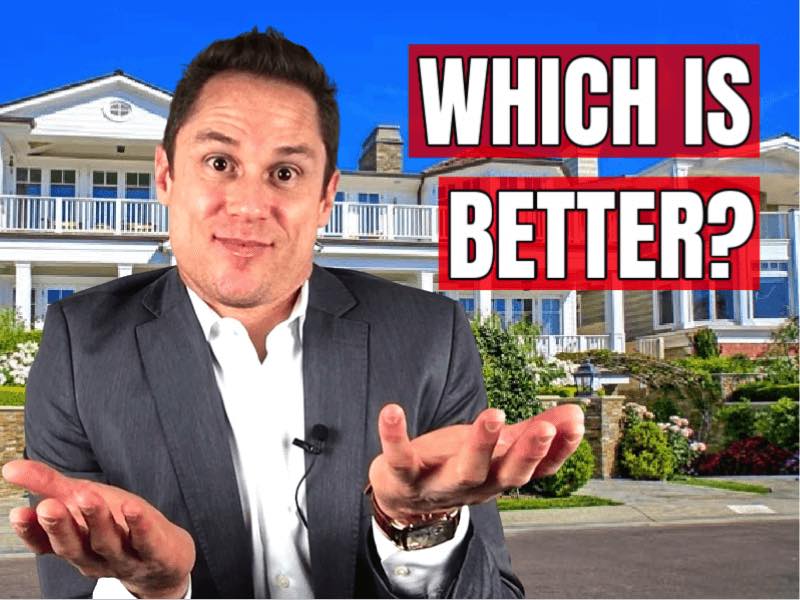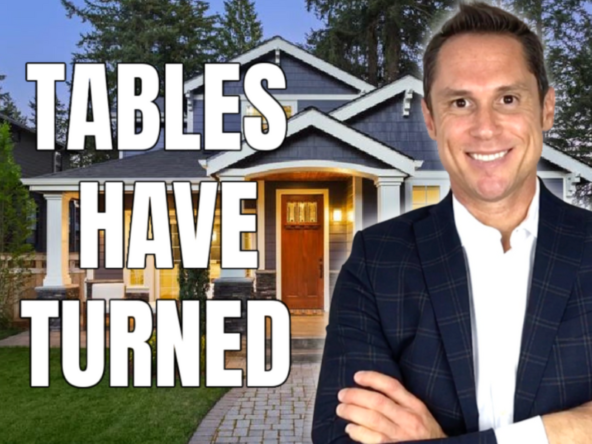So you want to buy a home and you’re being asked if you’ve been pre-approved or pre-qualified for a mortgage. What’s the difference between the two? Is it even necessary to take this step and which is better?
It doesn’t matter where you’re buying a home, when you make an offer every seller and their agent is going to want to know if you have the financial means to buy their property. So it’s important to know the difference between being pre-qualified versus being pre-approved. If not, it can mean the difference between having your offer accepted or being laughed out of a deal.
What Does It Mean To Be Pre-Qualified?
A mortgage pre-qualification is a rough estimate of how much money you can borrow to buy a home. Basically, a pre-qualification is a document stating that based on your current financial credentials you’d likely qualify for a mortgage.
Getting a pre-qualification letter can be as easy as calling a lender and answering a few simple questions. They’ll ask you about your income, how much you have in assets, and your credit. They might run credit, they might not. Provided what you’ve told them sounds good, they’ll issue you a pre-qualification letter.
What Does It Mean To Be Pre-Approved?
To be pre-approved for a mortgage involves much more of a process. You’ll have to fill out a loan application and everything you declare on it will need to be verified. It’s important to note, to get a pre-qualification there is no application required.
For a pre-approval, the lender will actually check your credit and evaluate your debt-to-income ratio. They’ll also verify your income and your assets.
You’ll be required to provide your proof of income, your W-2 Forms and/or tax returns, and proof of assets. This information will then be submitted to an automated underwriting process which will then produce a formal pre-approval document. In turn, your lender will be able to provide a pre-approval letter based on the automated pre-approval.
What’s the Difference Between Being Mortgage Pre-Qualified vs. Pre-Approved?
The difference between a pre-approval and a pre-qualification is like night and day.
To keep it simple, a pre-qualification is essentially an estimate or educated guess that you’d qualify for a certain amount. However, with a pre-approval, you’ll know how much you actually do qualify for. You’ll know what kind of a loan program you’ll be pre-approved for. Even more, you’ll know how much of a down payment would be required, your interest rate, your monthly payment, and your closing costs.
Getting a pre-approval is a more formal process because everything you state on the application you complete will be verified. As we know documentation beats conversation!
With that said, a pre-approval isn’t a guarantee you’ll get the loan, but it’s the closest thing you can get.
After you get pre-approved, the lender will still have to get an appraisal. They might also re-check your credit and your bank statements before final approval to make sure everything is as it was during the time of pre-approval.
A few things that might keep someone from getting financing after they’ve been pre-approved would be if the home doesn’t appraise for the minimum value required to qualify for the loan, if you quit or lose your job, or if you misreported something on your loan application.
It’s important to know what not to do before buying a house so you don’t cost yourself your home loan.
Why Get A Pre-Approval?
So why get a pre-approval if it’s not a 100% guarantee you’ll get the loan? There are several reasons.
1. Plan Your Monthly Budget
You’ll be able to plan your monthly budget for when you do buy because you’ll know what your estimated monthly payment would be.
2. Know Your Buying Power
You’ll know how much buying power you have. The worst thing that can happen is if you fall in love with a house and make an offer only to find out you don’t qualify for the loan. Getting a pre-approval will prevent that from happening.
3. Fix Your Credit
Since your credit will need to be run for a pre-approval, you’ll have the opportunity to fix any blemishes on your credit that might keep you from getting the best terms for a loan or that might keep you from qualifying for a loan altogether. If you have any stains on your credit, it might make more sense to take a few months to repair your credit before buying so you can get the best interest rate.
4. Be Taken Seriously By Sellers
Another crucial reason why you want to get pre-approved is you’ll be taken more seriously and viewed as a more motivated buyer in the eyes of a seller if you’ve been pre-approved compared to someone that hasn’t been.
Think about this, knowing what you know now, if you were selling your home and you had 2 buyers. All things being equal, you have one buyer with a pre-approval and another buyer has a pre-qualification letter, which offer would you accept? The answer’s obvious. After wadding up the pre-qualification letter and throwing it in the trash you’ll go with the buyer that’s been pre-approved.
Why would a seller roll the dice, take their home off the market for 21 days, and open escrow with a buyer that might not be able to buy their house? They wouldn’t unless they’re not all there!
5. Be Taken Seriously By Your Agent
It will be very hard to find a real estate agent to represent you as a buyer if you’re financing and you don’t have a pre-approval.
It doesn’t make sense for an agent to someone a home if you don’t know if they’re qualified to buy it. Not to mention, sellers aren’t going to want to have non-qualified buyers walking through and checking out their homes. It’s a waste of time for the buyer, their agent, and the seller.
Pre-Qualified vs. Pre-Approved: Which Is Better?
In a nutshell, if you’re not ready to buy, but you’re thinking about it and want to make sure you’re looking at the right amounts, get pre-qualified. A pre-qualification might be helpful if you’re about a year out, but if you’re ready to go you’d be doing yourself and everybody involved a disservice if you didn’t get pre-approved.
The video for this topic is also available on our YouTube Channel.





